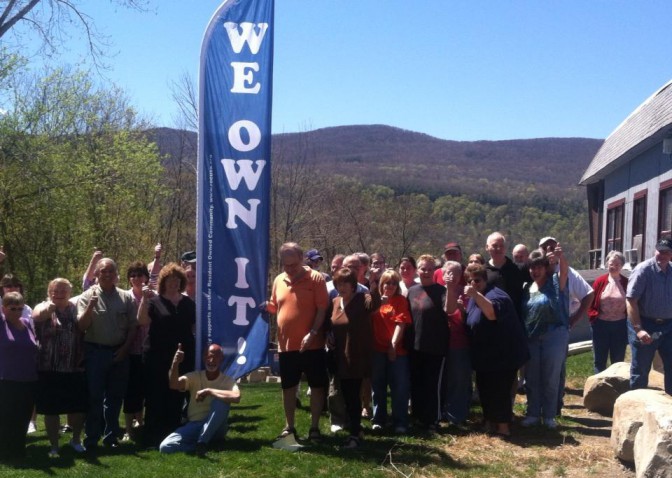By Jeanee Wright – NEROC Housing Specialist
October is Anti-Stigma month. I had no idea of that fact when I was asked to sit on a panel at the 2019 Maine State Housing Authority Conference on Affordable Housing held recently on October 1st. The stigma of living in manufactured housing is a personal one for me. As a young child, I lived in a “trailer”, as it was called by my friends and family members. I recall being labeled as trailer park trash. I remember not wanting to invite friends over because of the shame that I could not even recognize was brought by the way that people referenced my home and community. I know that those shameful feelings are what kept me from owning a home for much of my adult life. I fell victim to the stigma I had carried all of my life.
That recollection is what helped me prepare for this panel conversation on the de-stigmatization of Manufactured Housing. I saw this as an excellent opportunity to have a frank discussion on the mis-truths (which is where stigma evolves from) and facts of manufactured housing. After all, more than 18 million people in the United States live in manufactured homes, and in Maine, there are more than 600 manufactured housing communities. Manufactured housing is the largest source of affordable housing in the country and with the current affordable housing shortage, now, more than ever, it is critical to talk about and support manufactured housing.
The panel included two other participants: Tinamarie Smith, who is the President of the Maine Manufactured Housing Association, and Chris Linder, from MaineStream Finance.
Our panel provided participants a deep look at stigma and how stigma is essentially a lack of knowledge. With that fact, our conversation was started on how we message and talk about manufactured housing. A manufactured home is not a trailer or a mobile home. And a manufactured housing community is not a trailer park or mobile home park. Language matters in a perception based society, and how people view their own world can impact things such as their mental health and social outcomes.
Here were some other pieces of our conversation.
- Myth– Manufactured Homes are mobile. Truth– Manufactured Homes are only mobile when they are brought from the factory where they are built to the site. Once they are set in place, they are secured and it would take thousands of dollars to move it. The vast majority of these homes will never be moved.
- Myth– Manufactured Homes depreciate like a car. Truth– Manufactured homes have values based on local real estate transactions, just as much as stick built homes. If the value of homes in the market increases than values of all homes increase.
- Myth– Manufactured Homes deteriorate and are unsafe and older homes should all be replaced with a solid stick built home. Truth– Manufactured homes are well built and since 1976 they have been built to quality standards regulated by HUD. Newer manufactured homes are well built, energy efficient and if cared for (like with any home) they can last forever. Many people who live in older manufactured homes have been able to provide care and improvements that make these homes a good place to call home!
- Myth– Living in a manufactured housing community is a risk to the homeowner. Truth– There are many great communities that offer an even more affordable approach to home ownership by allowing the land to be leased. There are many affordable and well operated communities in Maine and throughout the country, and in some cases they are owned by the residents and operated by volunteer residents to keep the park permanently affordable and secure for the residents.

Fast forward many (and I won’t say how many) years later, to today: I live in an attractive, secure, healthy manufactured home. And guess what? It’s located in a community of similar style homes and referred to as a Manufactured Housing Community (MHC), better yet a resident owned community. The best part is this: I am a homeowner and I pay less than most other homeowners and far less than most renters. I am living the American dream, and pay a far smaller proportion of my income for housing than most Americans. I am planning for my financial future and have more income to spend which supports the local economy. I own smart, affordable, sustainable housing. It’s time to end the stigma and support efforts to get more awareness and supportive approaches to this great housing concept!
